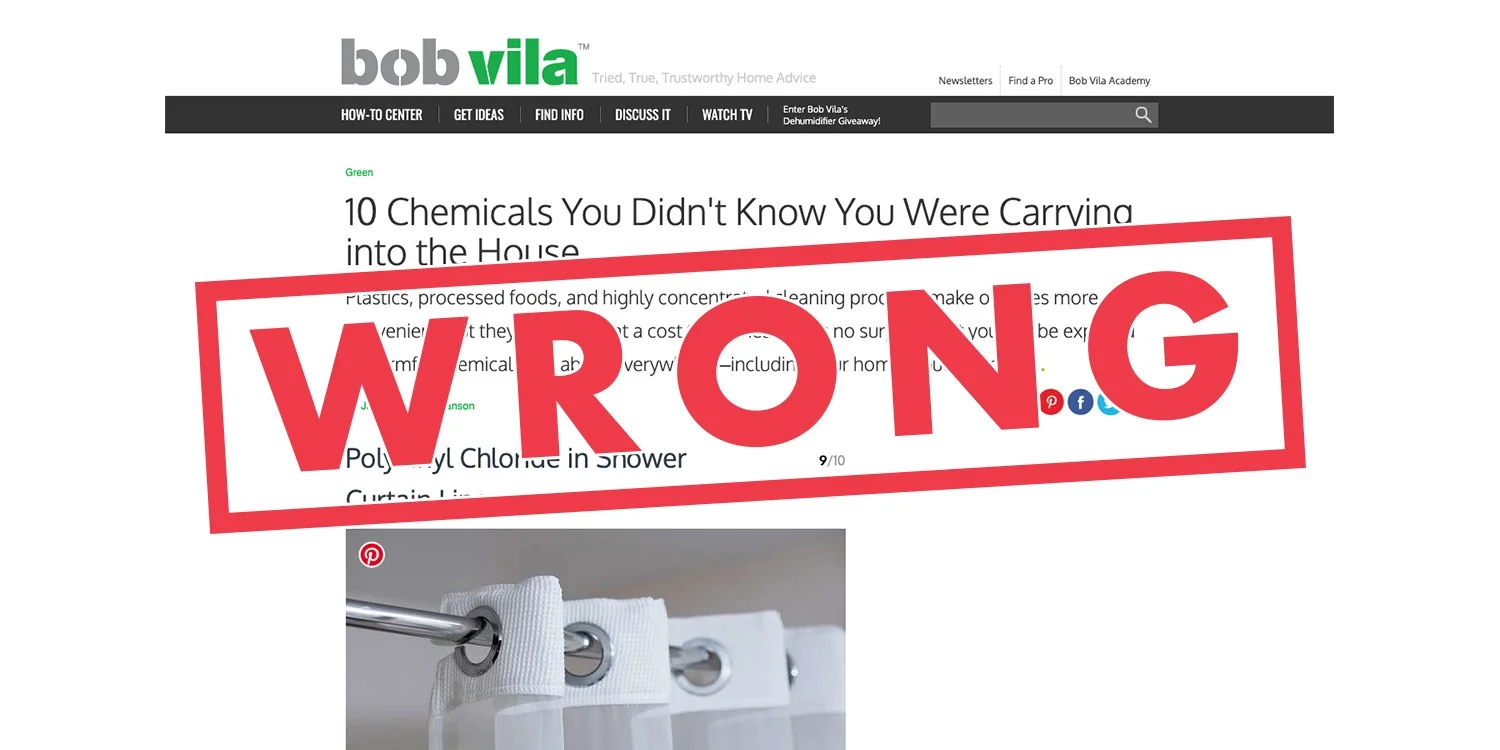In the last few weeks, we’ve seen several outlets post misleading or otherwise false claims about vinyl products. So we decided to round them up and debunk each one.
BobVila.com Misleads Readers on Vinyl Flooring and PVC Shower Curtains
BobVila.com recently claimed that plasticizers used in vinyl flooring can be dangerous. The truth is that phthalates have been safely used for decades. Even the strictly regulated State of California has researched and now issued “safe use determinations” for plasticizers in vinyl flooring and vinyl carpet tiles employing a variety of phthalates. Vinyl flooring is safe, durable, attractive and cost-effective. That’s why homeowners and builders choose it over other more expensive products.
They also claimed that PVC shower curtains can be harmful to human health. In fact, PVC is perfectly safe when used in shower curtains. BobVila.com engages in sensational, fear-mongering language with no evidence to support their claims. PVC is an inert material and is not considered a carcinogen by any authoritative body.
MORE: Columbia Researcher’s Careless Statement On Vinyl Flooring
MORE: The Environmental Working Group is Wrong About PVC Shower Curtains
Business Insider Promotes Junk Science on PVC Bibs
Business Insider recently claimed that PVC baby bibs can contain lead. They don’t. U.S.-made PVC bibs have never contained lead, and importers discontinued using lead in these products over a decade ago.
MORE: What Makes a Good Study?
The Independent Stokes Unnecessary Fear About Phthalates
The Independent recently promoted sensationalist claims about phthalates used to make rigid vinyl flexible. Phthalates have been safely used for more than 50 years and are some of the most tested substances in the world. Rigorous risk assessments by multiple government agencies in the United States, Europe, Canada and Australia have concluded that many phthalates present a low-risk for their current intended uses.




